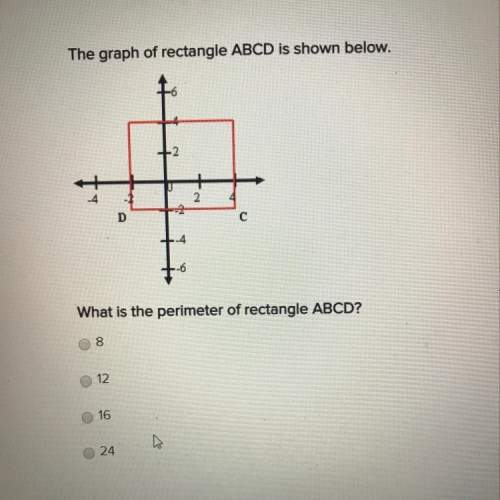
Mathematics, 27.11.2021 14:00 trashbinkid
How does
C(n) = P(down)[C( n - 1 ) + C(n) + k (n)] + P(same)[(C(n) + k(n)] + P(break)[C(n) + R + k(n)] + P(up)k(n)
become
C(n)[1-P(down)-P(same)-P(break) =
P(down)C(n-1) + P(break)R + k(n) ?
Please explain to me the factorisation process of the C(n) terms as thoroughly as possible and the summation of the k(n) terms as thoroughly as possible.
Either I have forgotten how factorisation works or I dont understand the maths of Markov chain & recurrence relations, or the poster skipped a lot of steps in his mathematical presentation.
Please help.
![How does
C(n) = P(down)[C( n - 1 ) + C(n) + k (n)] + P(same)[(C(n) + k(n)] + P(break)[C(n) + R +](/tpl/images/2571/9915/46c22.jpg)
![How does
C(n) = P(down)[C( n - 1 ) + C(n) + k (n)] + P(same)[(C(n) + k(n)] + P(break)[C(n) + R +](/tpl/images/2571/9915/c6d3a.jpg)

Answers: 1


Another question on Mathematics

Mathematics, 21.06.2019 14:10
Airline passengers arrive randomly and independently at the passenger-screening facility at a major international airport. the mean arrival rate is 10 passengers per minutes. compute the following probabilities. p(x = 4) p(x > 11)
Answers: 2

Mathematics, 21.06.2019 18:30
Find the constant of variation for the relation and use it to write an equation for the statement. then solve the equation.
Answers: 1


Mathematics, 21.06.2019 21:40
What is the value of x in the equation 1.5x+4-3=4.5(x-2)?
Answers: 2
You know the right answer?
How does
C(n) = P(down)[C( n - 1 ) + C(n) + k (n)] + P(same)[(C(n) + k(n)] + P(break)[C(n) + R + k...
Questions




Mathematics, 04.06.2020 20:06


Mathematics, 04.06.2020 20:06


Mathematics, 04.06.2020 20:06


Mathematics, 04.06.2020 20:06



English, 04.06.2020 20:06


Health, 04.06.2020 20:06


Mathematics, 04.06.2020 20:06



Mathematics, 04.06.2020 20:06




